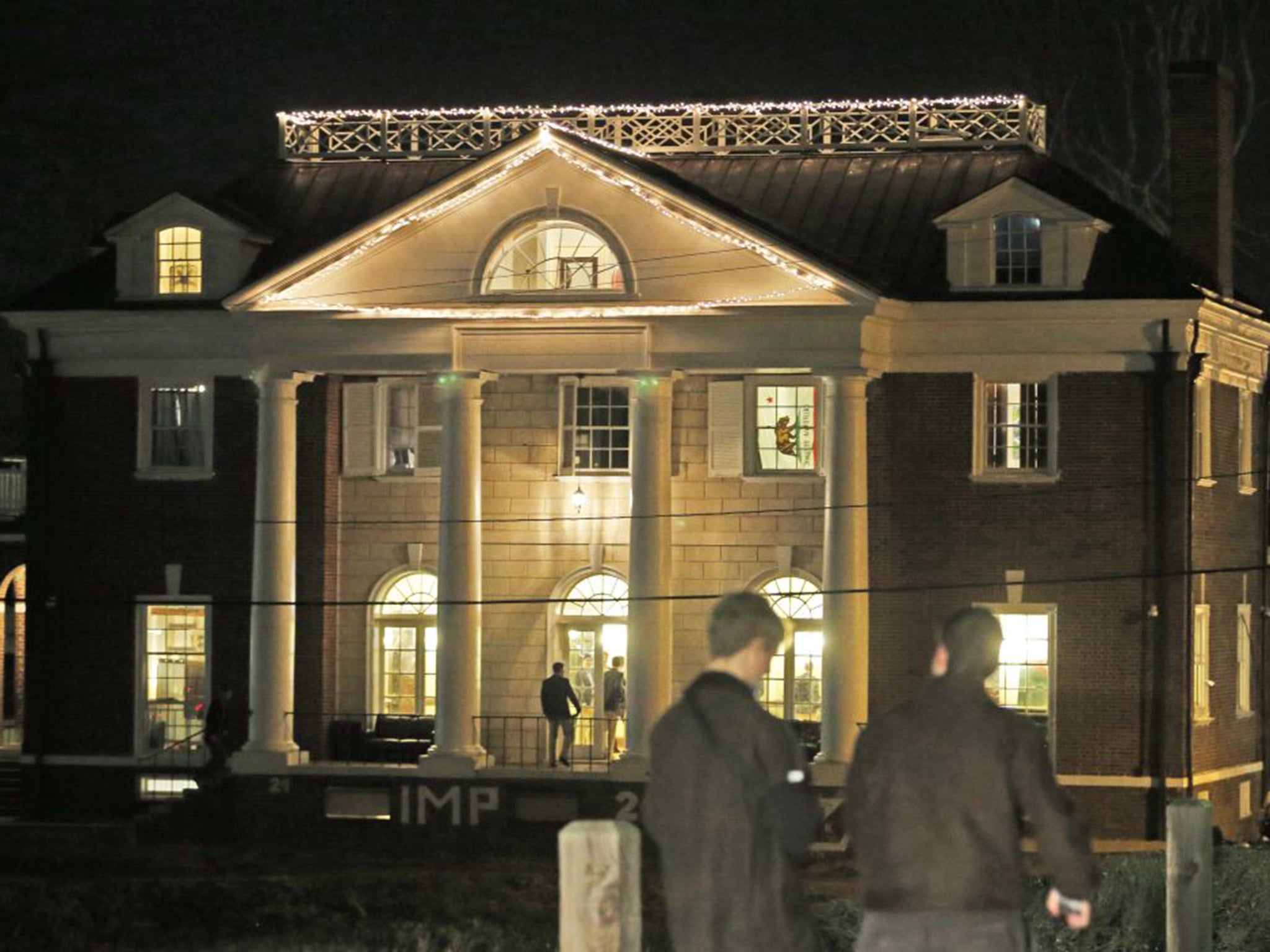Rolling Stone have let down survivors of rape with with a staggering failure of investigative journalism
As a survivor of sexual assault I knows the crushing hopelessness and despair that accompanies not being believed


Your support helps us to tell the story
From reproductive rights to climate change to Big Tech, The Independent is on the ground when the story is developing. Whether it's investigating the financials of Elon Musk's pro-Trump PAC or producing our latest documentary, 'The A Word', which shines a light on the American women fighting for reproductive rights, we know how important it is to parse out the facts from the messaging.
At such a critical moment in US history, we need reporters on the ground. Your donation allows us to keep sending journalists to speak to both sides of the story.
The Independent is trusted by Americans across the entire political spectrum. And unlike many other quality news outlets, we choose not to lock Americans out of our reporting and analysis with paywalls. We believe quality journalism should be available to everyone, paid for by those who can afford it.
Your support makes all the difference.In November 2014, Rolling Stone published a horrifying account of a gang rape on the University of Virginia’s campus, allegedly perpetrated by seven members of the Phi Kappa Psi fraternity. The article detailed the university’s callous self-preservation tactics and the self-interested responses of the victim’s friends on the night of her alleged assault. It was shocking, sickening and an explosive example of the rape culture that saturates American (and British) campuses. The only problem? The story wasn’t true.
Within days of the piece’s publication, commentators questioned its veracity, and the Washington Post uncovered details that ascertained that events could not have taken place as the Rolling Stone article described. ‘A Rape on Campus’ has been formally retracted, and on Sunday the Colombia Graduate School of Journalism report, compiled by Pulitzer-winning journalist and dean Steve Coll and commissioned by Rolling Stone itself, was published. The Colombia report examines in great detail the journalistic failings that lead to the story being released without proper verification of the facts and without giving all the parties depicted in the piece a chance to tell their sides of the story.
This makes me angry. I’m angry because what should have been a rigorous journalistic investigation has succeeded in drawing more attention to false allegations of rape and diverting focus from the problem of sexual assault and harassment on university campuses. I’m angry because veteran reporters, editors and fact-checkers at Rolling Stone should have known better than to rely on a single source to carry and verify a complex story that alleged criminal wrongdoing on the part of UVA students and neglect on the part of the university administration. I’m angry as a survivor of sexual assault, who knows the crushing hopelessness and despair that accompanies not being believed, and who also knows that every line of print devoted to false allegations makes it that little bit more difficult for people to come forward and report rape.
When campus rapes and assaults happen, and they do happen with alarming regularity (the US Department of Justice estimates that 1 in 5 women will be victims of sexual assault on campus), and when universities fail to protect victims of sexual assault, it is the responsibility of journalists to report on them in a sensitive and ethical manner. This means checking all the facts and contacting every person involved to allow them to tell their stories and uncover major inconsistences. If Rolling Stone had contacted the three friends of ‘Jackie’ who met her after the alleged assault took place, or Jackie’s lifeguard date who allegedly orchestrated the assault, perhaps the damage done by Jackie’s false story could have been entirely avoided.
Rolling Stone’s apology acknowledges that the magazine let down its readers and has damaged the reputations of the Phi Kappa Psi fraternity and UVA administrators and students. The magazine has also let down survivors of rape, of which there are estimated to be 85,000 in Britain every year and 300,000 in the USA (a low estimate). Every media source that wittingly, or in the case of Rolling Stone, unwittingly, publicises false allegations of sexual assault is making a major contribution to rape culture.
Rape culture means that rape and sexual assault are normalized and we are taught ‘not to get raped’ rather than ‘not to rape’. Rape culture is created through victim blaming, rape jokes, street harassment, myths about ‘blurred lines’ around the issue of consent, and through the relentless focus on the small proportion of falsely reported rapes. In reality, the malicious false reporting of sexual assault is not common.
Studies suggest that false reporting rates for rape are no different from false reporting rates for any other crime (around 4 per cent). The Crown Prosecution service has published a report stating that false rape reporting is ‘very rare’ and could make up less than 1 per cent of all reports.
The frightening thing is that the hostile responses in light of the Colombia report are so predictable. Many will use Jackie’s false allegations as an example of how women lie about rape and how victims cannot be believed. The debacle is prime ammunition for Men’s Rights Activists and others who seek to deny that rape culture exists and paint victims as manipulative and untrustworthy. I will not speculate on why ‘Jackie’ fabricated her story or write angrily to blame her, but Rolling Stone’s failure to confirm the accuracy of their story is indefensible.
There are so many women (and some men) who have real accounts of sexual assault to share. We cannot allow this staggering failure of investigative journalism to further silence real victims of rape and sexual assault.
Join our commenting forum
Join thought-provoking conversations, follow other Independent readers and see their replies
Comments